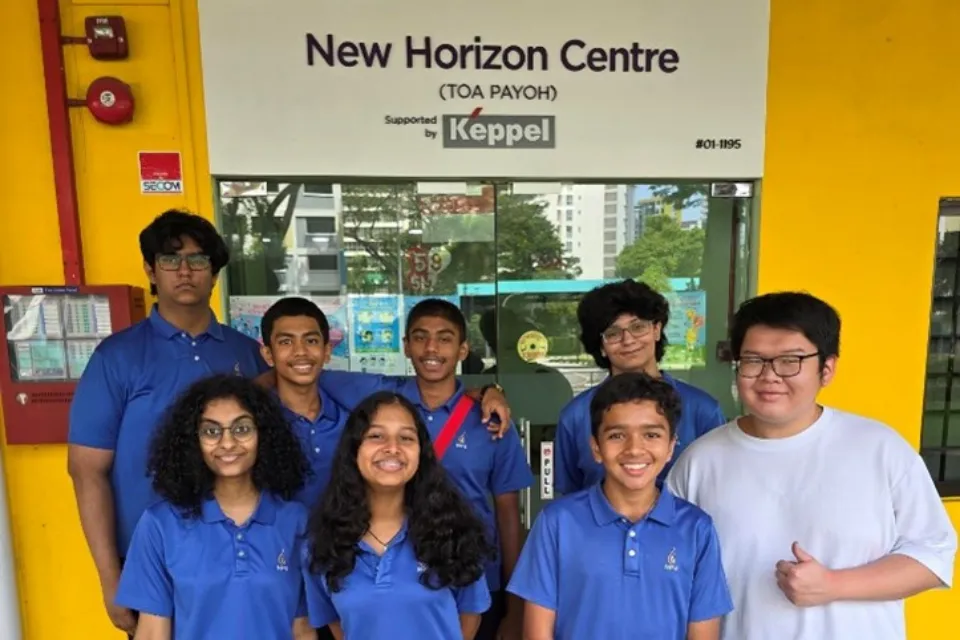Playback speed:
Terrence Ding has volunteered with Dementia Singapore since last year while pursuing a Diploma in Health Services Management at Republic Polytechnic. In March, he became Dementia Singapore’s first Youth Community Leader. We invited Terrence to share more about his aspirations and what being a youth volunteer leader in the dementia space means to him.
Hi Terrence, please tell us about yourself.
Hello! I just graduated from polytechnic not too long ago and I am currently studying real estate. I am actively volunteering with several organisations – one of them being Dementia Singapore (DSG) – and mainly focusing on my personal portfolio development while waiting for national service enlistment.
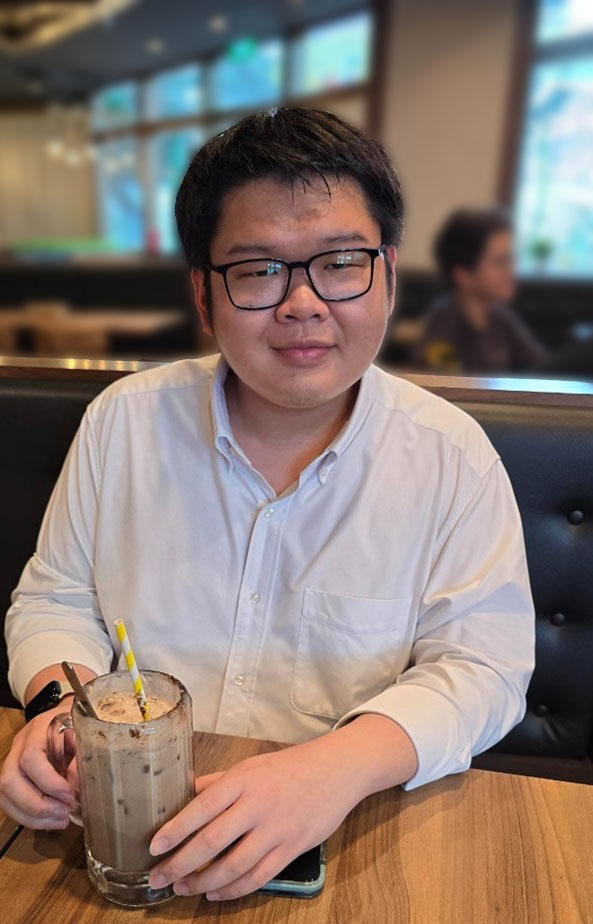
How did your involvement in volunteering begin?
Initially, I started volunteering because of the National Youth Achievement Award (NYAA). I wanted to get the NYAA and we had to clock in a number of hours across different programmes. After that, I continued to volunteer on my own because I find it an enriching experience.
Why did you decide to volunteer with Dementia Singapore (DSG)?
Back at Republic Polytechnic, we did a project with DSG at the Jurong Point New Horizon Centre. Going through that experience helped me to see how my volunteering efforts could help those ah gongs and aunties, and possibly be of relevance to my life in the future – dementia is not only for seniors. There is also young-onset dementia that affects younger people. Helping out at DSG helps me understand more about dementia and how to reduce risk of developing it. Volunteering here also helps me understand what it’s like being a person living with dementia, and seeing from their perspective.
What has your experience been like volunteering with Dementia Singapore?
I would say it has been great, because when I give feedback, it’s taken into consideration. I feel valued, like a member of this organisation. Volunteering at the centres has given me first-hand experience of interacting with persons living with dementia, which is a very good skill to have!
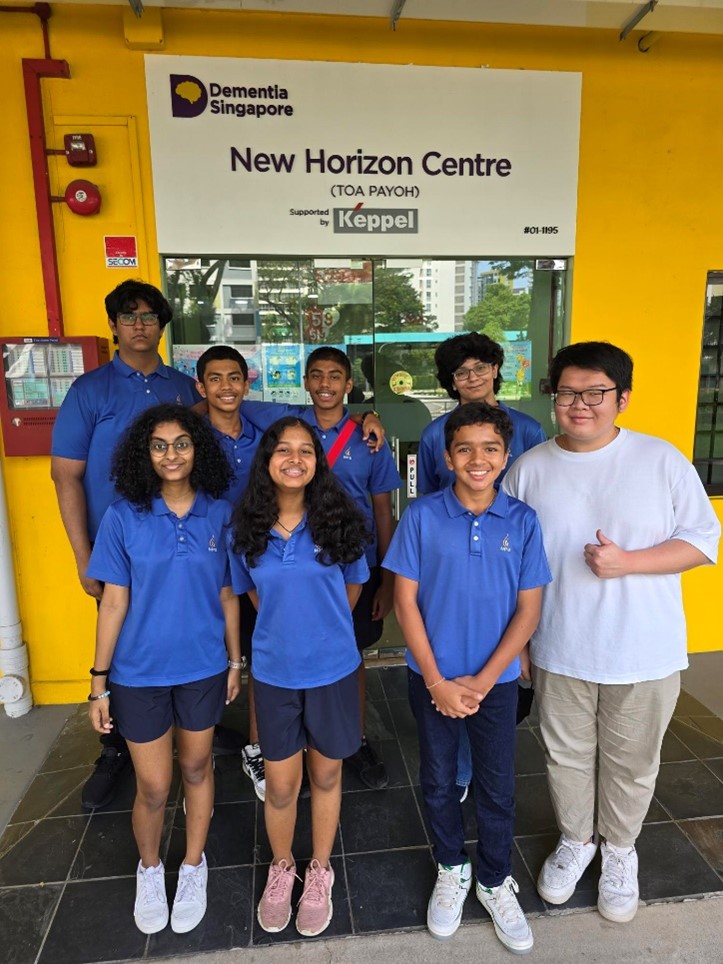
Could you share with us a particularly memorable experience volunteering with us?
During a volunteer session at Jurong Point in June, I was helping to conduct an activity with a group of students when a lady living with dementia started to talk to us. She shared with us about her past, her education and so on. It was a very enriching experience for me because I was not expecting such a level of interaction that day. The experience reminded me that persons with dementia are the same as everyone else. They may be forgetful sometimes, but they too have their life stories to tell, and these stories still resonate with us to a certain extent.
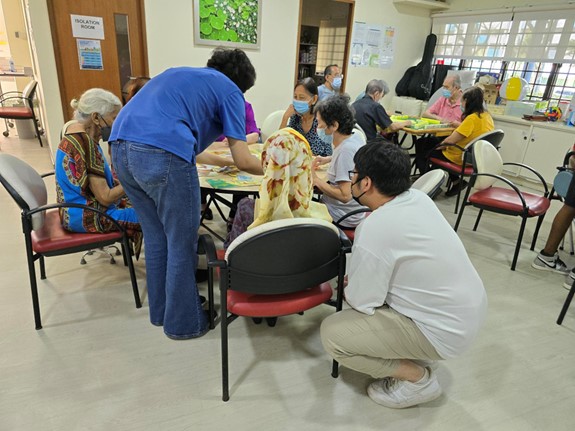
How do you feel about being Dementia Singapore's first Youth Community Leader?
Honestly, there is a bar to set, being the first Youth Community Leader. Being a leader is not just about helping out at one session and then going home. It is also about helping the staff or the organisation to see how they can develop further, such as pushing a programme to new heights. However, it is also enjoyable because I like to help.
What do you hope to achieve as a youth volunteer and a Youth Community Leader?
As a Youth Community Leader for DSG, I wish to help the organisation achieve its vision to build a dementia-inclusive society. On a more personal level, I wish to help solidify this role because this is a new programme. Moving forward, I hope that future Youth Community Leaders can feel empowered to make a difference, working alongside their respective organisations.
In one word, how would you describe your impact on the dementia community so far?
Okay, it is a little tough to narrow it down to one word, but if I had to choose, it would be ‘supportive’. Actively volunteering and contributing my knowledge to fellow youths is my way of supporting the dementia cause and helping persons living with dementia.
What changes do you hope to see in the dementia sector in the next five to ten years?
I hope to see changes in two broad categories: one being care and treatment, and the other for awareness and destigmatisation. Let me talk about care and treatment first. The change I would like to see are stronger policies and legislation to support dementia care and research. If we invest more into research for dementia, like providing more funding, this money can help with early diagnosis.
Also, when we put more funding into developing treatments, we might even find a cure for dementia! As we know, there is currently no cure for dementia, and it is also not easy to be a caregiver. Some of this funding could go towards providing more support for caregivers.
We could also integrate technology in care and monitoring of persons with dementia. For instance, caring for persons living with dementia at the New Horizon Centres is currently quite labour– intensive. Leveraging technology could relieve the workload of care and monitoring by staff there. Technology could also help achieve more patient-centred care. Moving forward, I think that care could be more personalised for persons living with dementia.
As for care and treatment, I hope that there can be more support networks for persons living with dementia to engage with the community.
My second broad area is awareness and destigmatisation – I hope for more public awareness, which is what Dementia Singapore hopes to achieve as well. We need to keep educating the public to recognise signs of dementia and to be more accepting of persons with dementia. In doing this, we can reduce the stigma towards dementia. Sometimes, people may laugh at persons with dementia behaving differently from themselves because they think it’s funny. But if they understood why they are behaving this way they do after getting educated about dementia, they might be more empathetic towards persons with dementia. So yes, I definitely hope for the stigma of dementia to be reduced.
On a personal level, what dreams and aspirations do you have for yourself?
I have a lot of dreams! I’m young and I have many ambitions related to community service. I want to be able to share my experiences volunteering at many organisations thus far, especially with fellow youths who want to learn about community service. I hope to empower them to chart their own path and make a difference to our society – no matter which cause they support – and I want to advocate more for youth volunteerism.
This article has been lightly edited for clarity.
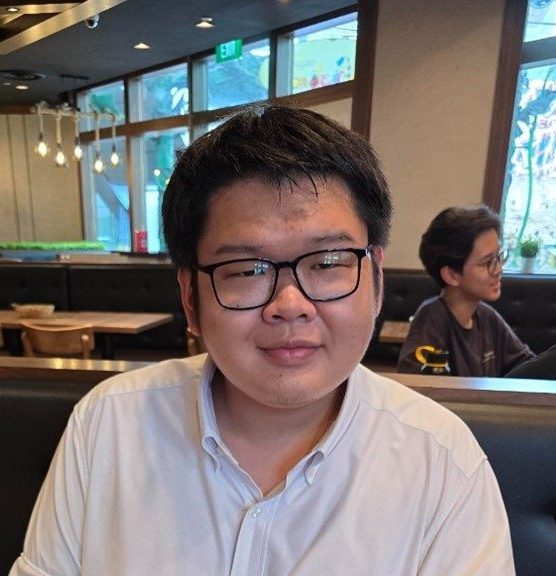
Terrence Ding
Terrence, a graduate of the Diploma in Health Services Management at Republic Polytechnic, is currently serving his enlistment. In his free time, he is deeply passionate about helping others by volunteering for various causes, including dementia-inclusivity in Singapore. He hopes to personally create positive change in his community.

